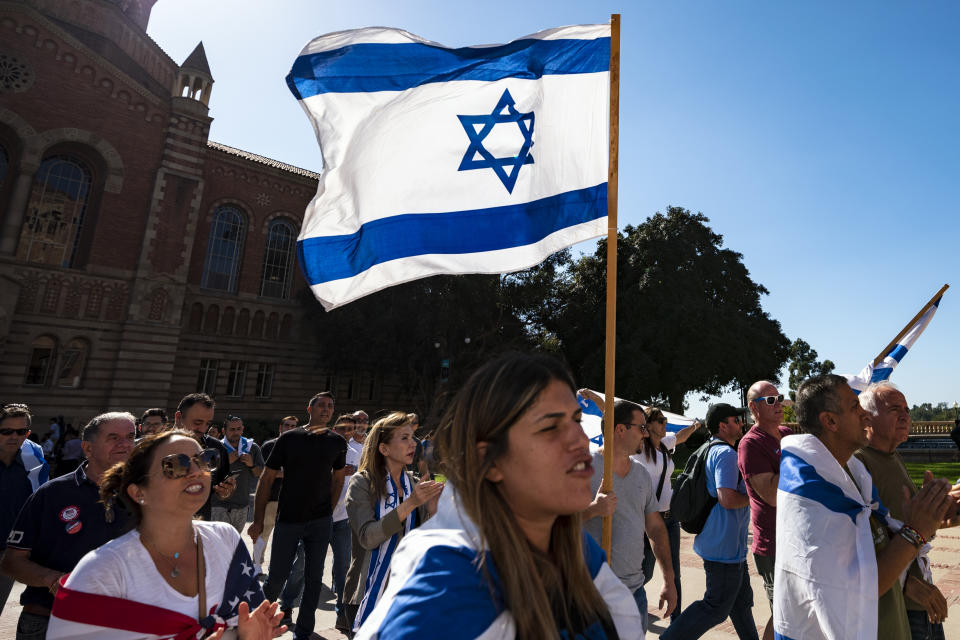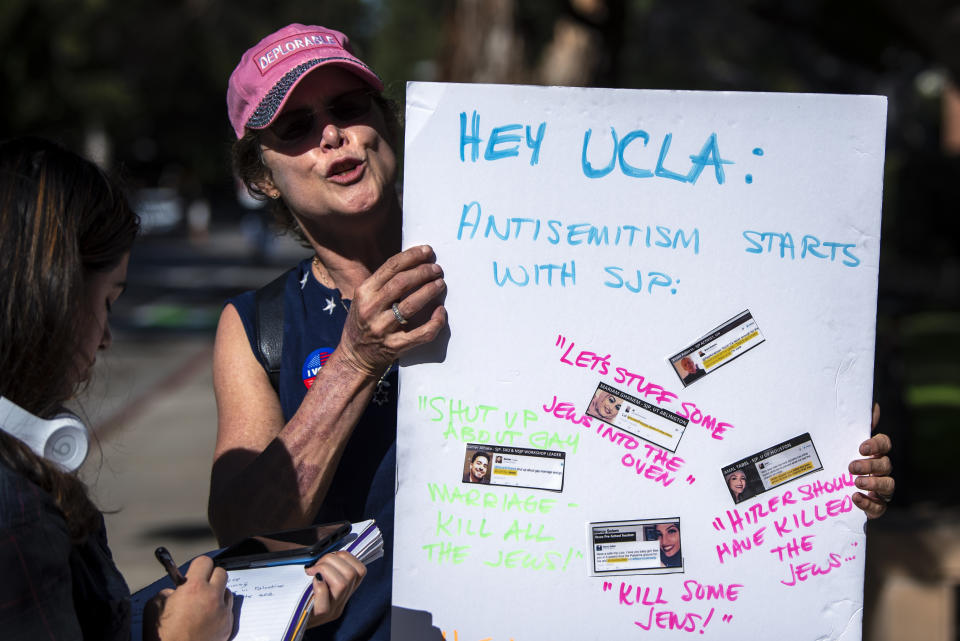Trump executive order on anti-Semitism stirs confusion
President Trump signed an executive order Wednesday giving the Department of Education broader authority to crack down on what he sees as anti-Semitic discrimination on college campuses.
The executive order applies new protections for Jewish students under Title VI of the Civil Rights Act of 1964, which prohibits discrimination based on race, color or national origin in any programs or activities that receive federal funding. While Title VI does not include religious discrimination, the order signed by Trump Wednesday states, “It shall be the policy of the executive branch to enforce Title VI against prohibited forms of discrimination rooted in anti-Semitism as vigorously as against all other forms of discrimination prohibited by Title VI.”

“My Administration is committed to combating the rise of anti-Semitism and anti-Semitic incidents in the United States and around the world,” the order states. “Anti-Semitic incidents have increased since 2013, and students, in particular, continue to face anti Semitic harassment in schools and on university and college campuses.”
However, initial reports of Trump’s plans to expand protections against anti-Semitism on campus prompted fear and confusion among many American Jews. Of particular concern was a report Tuesday by the New York Times that said the forthcoming executive order would “effectively interpret Judaism as a race or nationality, not just a religion.”

The idea that the president intended to redefine the federal government’s interpretation of Judaism as a nationality immediately evoked comparisons to Nazi Germany and the Soviet Union, and prompted warnings that such an order could set a dangerous precedent allowing for American Jews to be accused of dual loyalty or even deported.
Defining Judaism a nationality creates a pretext to accuse Jewish Americans of dual loyalties. https://t.co/0OfF0oWaZ1
— Lindsay Beyerstein (@beyerstein) December 10, 2019
As Trump plans to sign an executive order classifying Judaism as a race or nationality, remember that in Hitler’s first written comment in 1919 on the so-called Jewish Question, he likewise defined the Jews as a race and not a religious community.
— Jon Cooper 🇺🇸 (@joncoopertweets) December 11, 2019
Hey Seth, given that my Soviet birth certificate lists my nationality as “Jewish”, I find my tweet to be less hyperbole and more, well, reality. https://t.co/KyBFH2EpFd
— Bianna Golodryga (@biannagolodryga) December 11, 2019
Richard Spencer, a prominent white nationalist and leader of the so-called alt-right, who does not consider Jews to be white or European, also responded to the Times article. “This one might have a few unintended consequences,” Spencer tweeted.
The Anti-Defamation League (ADL), however, issued a statement praising the executive order as “an important step acknowledging the growing concern about anti-Semitism on American college campuses.” On Twitter, ADL CEO Jonathan Greenblatt sought to quell concerns about the order’s potential implications, assuring followers that he’d seen the draft order that Trump planned to sign and that it “protects Jews and other religious minorities from discrimination under Title VI, but does NOT break new ground on identifying Jews as a protected class.”
Jared Kushner, the president’s Jewish son-in-law and adviser, further attempted to address that panic with an op-ed in the New York Times praising his father-in-law’s new policy.
“The executive order does not define Jews as a nationality,” Kushner writes. “It merely says that to the extent that Jews are discriminated against for ethnic, racial or national characteristics, they are entitled to protection by the anti-discrimination law.”

The text of the order does not explicitly redefine Judaism as a nationality. However, it states that under new policy, discrimination against Jews may qualify as a violation under Title VI of the Civil Rights Act of 1964, which does not prohibit discrimination on the basis of religion, but race, color or national origin.
In an email to Yahoo News, New York Times editor Jonathan Weisman, who edited the original article on the executive order, defended the paper’s reporting.
“We were briefed on the content of the executive order but were not shown the actual language,” Weisman explained, writing, “The text now circulating comports with our understanding of the order and confirms the accuracy of our story.”
“The EO effectively does bring Judaism under the umbrella of race and national origin for the purpose of civil rights law enforcement,” Weisman wrote. “What would ‘national origin’ refer to if not to a collective geographical identity?”
Weisman also noted that the Times on Wednesday published another article revealing that well before Trump signed the executive order, the head of the Office for Civil Rights at the Department of Education had already begun opening “national origin” investigations into possible discrimination against Jewish students by multiple universities.
While the ADL defended the president’s action, some other Jewish advocacy groups criticized the order as an attempt to stifle criticism of Israel while promoting anti-Semitic stereotypes. Rabbi Alissa Wise, acting co-executive director of Jewish Voice for Peace, said in a statement: “Three days ago, Trump said Jews would vote for him because they like money. And yet now he suddenly pretends to care about Jewish safety? He has never cared about stopping antisemitism — this Executive Order is about silencing Palestinians and the people who speak up with them.”
Trump, who has positioned himself as an unwavering ally to Israel since he first took office, has recently been accused of wading into more explicitly anti-Semitic waters with his efforts to win the support of Jewish voters.
In August, for example, Trump declared that any Jewish person who votes Democratic “shows either a total lack of knowledge or great disloyalty,” a comment decried by critics as promoting the anti-Semitic stereotype that Jews are guilty of dual loyalty.
Apparently unfazed by the outrage, Trump seemed to double down on that controversial characterization during a speech to the Israeli American Council in Florida over the weekend.
“You have people — Jewish people — and they are great people and they don’t love Israel enough,” Trump said, while touting his administration’s pro-Israel accomplishments and declaring, “The Jewish state has never had a better friend in the White House than your president, Donald J. Trump.”
_____
Download the Yahoo News app to customize your experience.
Read more from Yahoo News:


